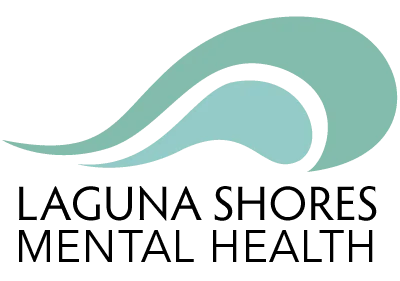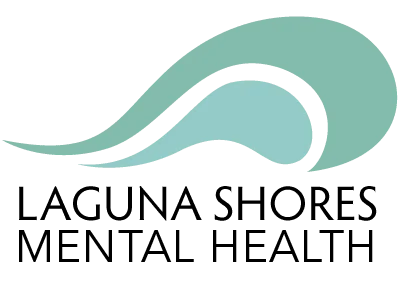Schizophrenia has stage-by-stage progressions characterized by diverse symptoms. Thus, knowing the phases of Schizophrenia is key to curbing symptom flare-ups. We’ll help you identify these phases and pinpoint where you are in an effort to personalize your mental health treatment. The details below equip you with the knowledge you need to overcome your struggles and take control of your mental health once and for all.
What are the Phases of Schizophrenia?
The best way to stop mental health condition symptoms in their tracks is to understand each phase. These levels are categorized into three stages. Pinpoint your role in the following phases and attack your battles head-on.
- Prodromal Phase: The prodromal phase is the first sign of schizophrenia disorder. This stage can be subtle, thus making it easy to overlook the symptoms. Thankfully, our unparalleled assessment team spots these symptoms and offers a quick and effective resolution to personalize your mental health therapy.
- Active Phase: This phase is the most evident phase of schizophrenia that manifests itself through disorder-specific episodes. This is a telling indication that the sufferer needs immediate medical attention. Reach out to our specialists now to get immediate symptoms and condition management.
- Residual Phase: This phase is when the active phase shows signs of temporary remission. It’s important to note this does not mean Schizophrenia disorder is gone. These personality disorders never fully leave. This simply means the specific cycle of symptoms has begun to alleviate for the time being.
- Silent Phase: While this is not one of the official medical phases of schizophrenia, it remains a very real part of the disorder. This stage is exactly what the name suggests: a period of silence, with minimal symptoms and a seeming break from battling symptoms. This phase does not mean the end of symptomatic flare-ups. Think of this as the calm before the storm. Our treatment aims to help you manage symptoms to the point where you can achieve and maintain this silent period.
What are the Symptoms of Each Stage of Schizophrenia?
Each of the phases of schizophrenia has a unique set of behavioral and mental manifestations. Here is an in-depth overview of each phase’s symptoms.
Symptomatic manifestation can be as subtle as irrational and sudden anger or other minor likenesses. This includes mood swings or the first uncharacteristic manifestations of reclusiveness or social isolation. To the casual observer, the prodromal stage of symptoms may not appear like much on the surface. However, observing and acting upon these introductory signs can help keep the progressive phases at bay.
The active phase of schizophrenia reveals the most visually evident symptoms as the most severe phase of this disorder. These symptoms consist of hallucinations, paranoid delusions, indiscernible speaking, or infused thoughts manifesting themselves through fragmented, irrational speech. This means the individual will be incapable of finishing complete thoughts, making little to no sense to people around them.
For lack of a better term, this is the retracted phase of schizophrenia that still has several uncomfortable symptoms. Elevated anxiety levels and depressive thoughts are often associated with this phase as carryover effects from the discouraging active phase. At this stage, an individual will attempt to rationalize the delusional thoughts from the active schizophrenia stage.
The silent phase can come with little to no manifestations and even result in a false diagnosis due to a lack of symptoms. These signs are even more minimal than the prodromal stage, yet with similar manifestations. Rest assured, our assessment and CT scan procedures ensure accurate diagnosis regardless of symptomatic absence. Reach out to our specialists to get the most accurate diagnosis, individual therapy, and personalized treatment.
Why Recognizing the Phases Matters
Recognizing the phases is more than simply being informed. Identifying the symptomatic stages is a part of implementing effective mental health management as a whole. That said, here is an in-depth overview of why recognizing the phases matters.
Knowing which phase you’re in is vital from a treatment perspective. Hence, our professional assessment team utilizes Laguna Mental Health’s thorough evaluation methods to personalize your treatment and maximize therapeutic efficacy. Your assessment phase determines your mental health treatment program placement and the extent of your care. Rest assured, you’ll never feel unprepared or out of place in any of our individualized treatment programs.
Spotting the phases isn’t just to help doctors take appropriate action. It’s so that family members can take immediate and proper intervention on their behalf. That’s why we equip loved ones of the suffering party with the proper observational tools to help them read and react to the situation. This cues you on when to seek out professional help when on-the-spot preventative methods aren’t a viable option.
The earlier you spot personality disorder indicators, the easier it is to stop phase progression in its tracks. Therefore, with the proper training, you can spot the introductory prodromal phase symptoms and prevent more difficult symptom flare-ups. That’s why our mental health specialists stress the importance of family training and involvement as a vital support mechanism.
Seeing an episode in action requires a unique intervention approach for your and the sufferer’s safety. Anybody reacting without the knowledge that a manic episode is transpiring can put everybody in harm’s way. Hence, being properly informed helps you make an educated and safe decision for everyone involved. That’s why our experts have the most in-depth training for friends and family to provide the support they need.
Understanding the signs is so much more than just reading and reacting to the situation. Knowing the phase helps you know whether to contact emergency services or a therapeutic professional. This is important because, while some phases require immediate therapist attentiveness, some symptoms require serious medical or even law enforcement intervention.
When to Seek Help from a Mental Health Professional
There are very blatant indicators that an individual needs help. It’s time to get professional help if you fit any of the following criteria.
All mental health disorders have the potential to inflict inescapable bouts of depressive thoughts or suicidal tendencies. Schizophrenia is no different, and these discouraging thought cycles can onset on a dime without warning. If this describes you or someone you love, it’s of the utmost importance that you get immediate mental health treatment.
It’s time to seek professional help if the active phase persists with no end in sight. This is a torturous, repetitive cycle that is dangerous to dwell in for the sufferer and anybody associated with them. Thankfully, our mental health symptom management techniques can break these schizophrenia expression cycles and restore your peace of mind.
Laguna Mental Health is a beacon of hope for individuals who have lost all hope. When you feel you have nowhere to turn, we’ll instill a newfound sense of hope and encouragement you never thought possible. Open yourself to a world of endless possibilities by reaching out to our unrivaled treatment team today.
As alluded to previously, the earlier you respond to the first sign of schizophrenia, the better. This enables physicians to take swift action before the individual transitions into other phases of schizophrenia. This helps us neutralize symptoms at the source and deal proactively with the current stage of your mental health battle.
Effective Strategies to Deal with Schizophrenia
There are on-the-fly strategies you can implement throughout your mental health treatment. Here are some of the most effective methods you can enact in the event of an impending symptom flare-up.
Nothing helps you deal with personality disorders on the fly better than around-the-clock therapeutic support. For individuals who require total access to our mental health recovery arsenal, residential therapy may be the best option. Connect with our team to see if you qualify for our top-notch residential therapy treatment.
The reason we stress the importance of family and friend involvement is that support is the most vital asset in mental health treatment. This means being a full-time support member that the disorder sufferer can call upon at any time. This enables family members to help alleviate mental health condition symptoms on the fly.
The most effective part of therapy is the life-changing mental health management training techniques you learn in recovery. These training techniques are not just for the mental health condition sufferer. We teach these methods to the entire family to ensure all parties are prepared in the event of a flare-up. These strategies help you deal with unexpected symptomatic manifestations in the moment.
A primary trigger of personality disorders is discouragement and negative thought processes. Therefore, thinking positively and forcing yourself to dwell on positive thoughts can help you break these negative thought cycles. This can be an impulsively implementable method instilled by our Eye Movement Desensitization Reprocessing Therapy.
Laguna Mental Health Can Relieve Your Mental Health Burdens
We are a sanctuary for individuals suffering from mental health conditions. Our superlative treatment methods are just the remedy you need to take control of your mental well-being. Take control of your thoughts, your mental fortitude, and your life by contacting us today. Contact Laguna Mental Health today to learn more.

